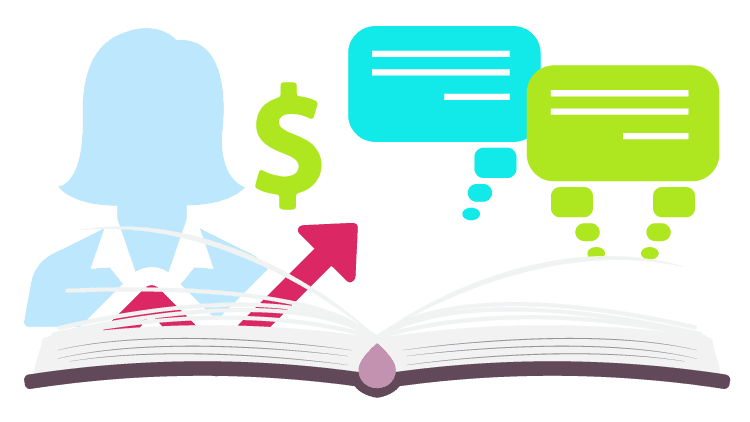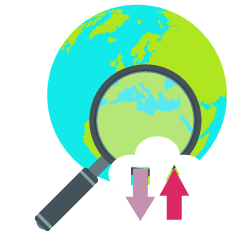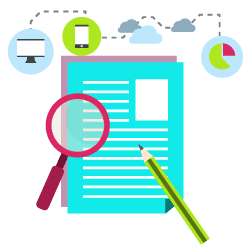
What You Need to Know Before Asking For Translation Quotes
By simply calling or email correspondence, translation quotes can be acquired directly from translation service providers. The challenging part starts when the project manager or liaisons officer begins to ask you a series of questions which then leads to some more questions. As rudimentary as what language the material is written in, to what file format it is—even how the tone of the translation should be—are some basic bits of information that the agency or translator may need before they supply the much needed translation quotes. Having the right information about translation needs may prove useful and clever when asking for translation costs. It does save some time from constantly contacting the agency if all pertinent information is supplied to them prior to starting on with the translation work. Clients can provide agencies with specific details and expectations about the material to be translated that cuts short the otherwise lengthy discussion of translation requisites.
Translation quotes can sometimes be as direct and blunt as to put the translator (when working directly with freelancers) or project manager (when getting in-house translation services) to such inconvenience, if not embarrassing enough.
Basic tips to get fast translation quotes
In what language is the (source) document written in? Basic of these questions is that concerning the translation source’s language. Agencies can then determine a particular translator or team to handle the project. Native speakers are mostly enabled to work on these translation endeavors; this ensures optimal accuracy and quality for the finished product. Knowing the source language does not necessitate its full understanding. At least, to some extent, the client must know what language the document is written in to give translators a heads-up on what style, technique and structure he may have to deal with. This proves useful when asking for translation quotes.
To what language will it be translated to? This directly refers to what target market the client is aiming the translation for. Seemingly difficult to group markets merely on the language that they speak, knowing what specific market the translation work is focused on will make end results more appealing and useful. The reason for this is simply being that languages have sub-categories that vary per location per country.
For instance, if your target market is Chinese people, knowing which specific area the target market is makes a huge difference. Traditional Chinese is used widely in Hong Kong and Taiwan, while Simplified Chinese is spoken in mainland China.
In this same way, the French language can be specified into Canadian French or European French.
As similar to the distinction being accorded to British English and American English, Spanish in Mexico is different from that spoken in Spain (and is usually termed as European Spanish due to its background and influences).

The document is about what? The source material being translated should be identified and themed. There are documents that are industry-specific. Knowing the subject of the document to be translated makes easier and smoother for translators to work on. As there are materials that can be very technical, knowing the appropriate subject gets the job done right because the right people are employed to do the linguistic work.
How many words are there? Although there can be translation software to do the word count for the document, it is still best to know roughly, if not exactly, the number of words the source document has. Agencies can provide a more accurate translation quotes if the exact word count for the document is provided.

What is the file format of the source material? Is it written in Word file, or is it in pdf? Or perhaps the text is in Excel? Or probably Access? They may also be in Quark files, or a presentation created in PowerPoint? Knowing which of this format provides the agency ample opportunity to decide what specific program or team to be utilized for such a project.
Or perhaps, the translation may need typesetting? Also, it may be a website to be translated, in which case localization may have to be integrated.
When are the translated material needed? At most times, this question may not be necessary as translation work varies depending on the material, language and document format it is translated to. There are, however, translations that are time-sensitive. Knowing this makes the translators and the agency aware of the need to comply with the document’s time element, also the translation rates may be higher in this case.
Understanding these fundamental questions make acquiring translation quotes more accurate, reliable and faster, not to mention that the translation output meets desired specifications and requirements that is full to quality and accuracy.
Most importantly, your translator requires to know what language combination you need. It’s possible that you need a pair of languages they don’t offer, or that they don’t translate into English but only into the foreign language.
When requesting a translation quote, attach the content. It is best if you give the text you want to translate. You will get quotes that are more correct, and the translator will better tell you of the delivery time.
You might not have the text when asking your translation quote, or you might not want to upload it for confidentiality reasons.
In that instance, specify the number of words in the document to be translated. If you don’t add the text or show the number of words, the translators won’t know how much work to include or how much time it will take.
That is why it’s important to specify the details of your text.

Get your online translation quote in a few steps: upload your document, select the languages and you’ll get the final price immediately. If the translation quote meets your requirements, you can order online. Our expert translators will quickly handle your order.
A Custom Translation Quote
Big or complicated translation projects may need a custom translation quote. Contact our team or leave your specifications and we will get back to you with a quote tailored to your needs.
Why Ask for a Translation Quote?
Whenever you need a text translated, the first stage is to ask for a translation quote. This is a necessary action to make sure the level of service you prefer meets your needs. With USA Translate, you can receive your translation quote instantly online, or contact our team for advice on the most suitable alternatives for your text. As soon as you accept our quote, your projects will be started automatically, and your translations will be delivered to you.
